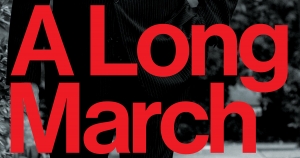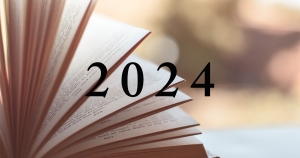Joel Deane
Criticisms first. Kim Carr’s insightful yet evasive memoir, A Long March, reads more like a short march. As a key left factional leader in the Australian Labor Party for the best part of forty years, the former Victorian senator squibs on details. He doesn’t explain the subterranean workings of the ALP; doesn’t fess up on the genesis of his feuds with the likes of Julia Gillard, Kim Beazley, Greg Combet, Anthony Albanese, and John Cain; doesn’t come clean on the part he played in the fall of the Gillard government in 2013; and doesn’t take his share of responsibility for the Rudd-Gillard-Rudd governments’ failure to implement his laudable industry policies. This book should be more revealing, much longer, and much more reflective.
... (read more)This week on The ABR Podcast, Joel Deane considers the black and white politics of opposition leader Peter Dutton. Deane explains that Dutton considers these politics a ‘police trait’ that he developed while in the force, and one that now serves him well in politics, especially when making necessary snap judgements. But will this style endear him to the electorate in the next election campaign, likely fought against Prime Minister Anthony Albanese? Joel Deane is a speechwriter, novelist and poet. Listen to Joel Deane’s ‘The Manichaean Candidate: Peter Dutton’s black and white politics’, published in the September issue of ABR.
... (read more)Bill Hayden, the first Queensland policeman to lead a federal political party, wrote of his experiences as a constable – the violence, the squalor, the tragedy – in his autobiography, Hayden (Angus & Robertson, 1996), and concluded: ‘All of these led me to feel a great anger at the injustices some people had to bear.’ At one point, the former governor-general noted that his ‘humanist’ reaction to injustice reflected his background as the son of a father who was an illegal immigrant and a mother who suffered domestic abuse.
... (read more)What the authors of these three wildly different books share is a gift for creating through language a kind of intimacy of presence, as though they were in the room with you. Emily Wilson’s much-awaited translation of The Iliad (W.W. Norton & Company) is a gorgeous, hefty hardback with substantial authorial commentary that manages to be both scholarly and engaging. The poem is translated into effortless-looking blank verse that reads like music. The Running Grave (Sphere) by Robert Galbraith (aka J.K. Rowling), the seventh novel in the Cormoran Strike crime series and one of the best so far, features Rowling’s gift for the creation of memorable characters and a cracking plot about a toxic religious cult. Charlotte Wood’s Stone Yard Devotional (Allen & Unwin, reviewed in this issue of ABR) lingers in the reader’s mind, with the haunting grammar of its title, the restrained artistry of its structure, and the elusive way that it explores modes of memory, grief, and regret.
... (read more)Why did Australia vote against the Voice referendum?
... (read more)Early in Joel Deane’s third novel, the point of view shifts from the first to the third person as the narrator, Patrick ‘Pin’ Pinnock, reflects on a moment in boyhood, standing atop a diving board at night.
... (read more)This week on the ABR Podcast, we have Joel Deane with The Great Australian Intemperance, his essay on rising economic and political insecurity as reflected in the My Place movement, conspiracy theories, neo-Nazis, and ‘sovereign citizen’ groups. Joel Deane is a poet, novelist, journalist, and speechwriter. Listen to Deane’s The Great Australian Intemperance, published in the September issue of ABR.
... (read more)The stumping of Jonny Bairstow reminded me of reaction chains. Bairstow, in case you didn’t waste winter nights watching the Ashes, was the English batsman controversially stumped by Australian wicketkeeper Alex Carey during the second Test at Lord’s. Pandemonium ensued, with the poohbahs of the Marylebone Cricket Club berating the Australian team during the lunch break as they filed through the holiest of holies, the Long Room. The brouhaha led news bulletins around the cricketing world; even the prime ministers of Australia and the Old Enemy weighed in.
... (read more)Joel Deane reviews '2022: Reckoning with power and privilege', edited by Michael Hopkin
'Australia faces the real prospect of a war with China within three years that could involve a direct attack on our mainland.’ That was the opening line of a 2,174-word article – headlined ‘Australia “must prepare” for threat of China war’ and tagged with a ‘Red Alert’ graphic – that ran on the front pages of The Age and Sydney Morning Herald on 7 March. Next day, the authors of the ‘Red Alert’ special, journalists Peter Hartcher and Matthew Knott, ran a 2,241-word hypothetical about how a conflict over Taiwan could, within seventy-two hours, result in missile bombardments and cyberattacks against Australia. On the third day, Hartcher and Knott’s ‘Red Alert’ special concluded with a 2,278-word front-page piece on the steps that Australia needed to take to prepare for war with China.
... (read more)









